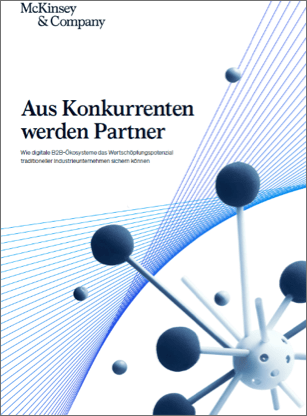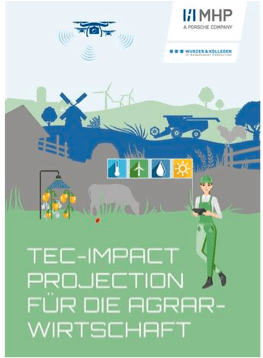Patents in digitally transforming eco-systems
“Competitors become partners ”, that is the title of a recent study by McKinsey & Company. The background is a phenomenon that can be observed in more and more business eco-systems. The digital transformation of eco-systems. Is digitization the trigger for the breaking up of historically grown and well-established competitive structures and industry boundaries?

An “eco-system” defines the economy as the community of all actors in an industry. The digitization – especially the connectivity – of products enables these actors to offer digitally supported services for their originally physical products. In addition to the new product-service offers created by networking, there are also opportunities for other companies. Cross-industry and interdisciplinary collaborations are taking advantage of these new eco-system players to gain value and market shares with their own, innovative (often disruptive) offers. The new industry comrades-in-arms often do not come from traditional industry, but are part of the “New Economy”. Equipped with considerable software and IT competence, they can define their own range of services without time-consuming and resource-intensive investments in manufacturing infrastructure and the development of physical products.
Not only is the value-added share shifting more and more in favor of software and services, these immaterial service offers can also be developed, modified and extremely scaled comparatively quickly to the respective situation. Here, so the question from McKinsey, will the traditionally grown, mostly medium-sized companies only have the role of hardware supplier in the eco-system in the future?
 How this danger is to be countered from the perspective of the traditional industry, some sectors are successfully showing: The agricultural sector is confronted with far-reaching natural, social and technological influencing factors, which the Diesel Board of Trustees of the German Institute for Invention has published in a Tec Impact Report for the Agriculture are described. An initial problem – the increasing demand for productivity and the related approach of digitization in the agricultural industry – is made comprehensible in the following video:
How this danger is to be countered from the perspective of the traditional industry, some sectors are successfully showing: The agricultural sector is confronted with far-reaching natural, social and technological influencing factors, which the Diesel Board of Trustees of the German Institute for Invention has published in a Tec Impact Report for the Agriculture are described. An initial problem – the increasing demand for productivity and the related approach of digitization in the agricultural industry – is made comprehensible in the following video:
In transforming eco-systems, the instruments of commercial legal protection offer the unique opportunity to secure your own role in the long term at an early stage. Sometimes it is even possible to orchestrate your industry by successfully establishing and securing an eco-system-dominating platform. The basic prerequisite for this is to enable the complementary platform partner, but also competitors, to offer their individual services under fair conditions.
The analysis and structure of the IP strategy based on IP design is documented in the CLAAS case study. The associated business case from 365FarmNet, a 100% subsidiary of CLAAS, was presented at the CTO Autumn Forum 2019 by Mr. von Löbbecke, CEO of 365FarmNet.



